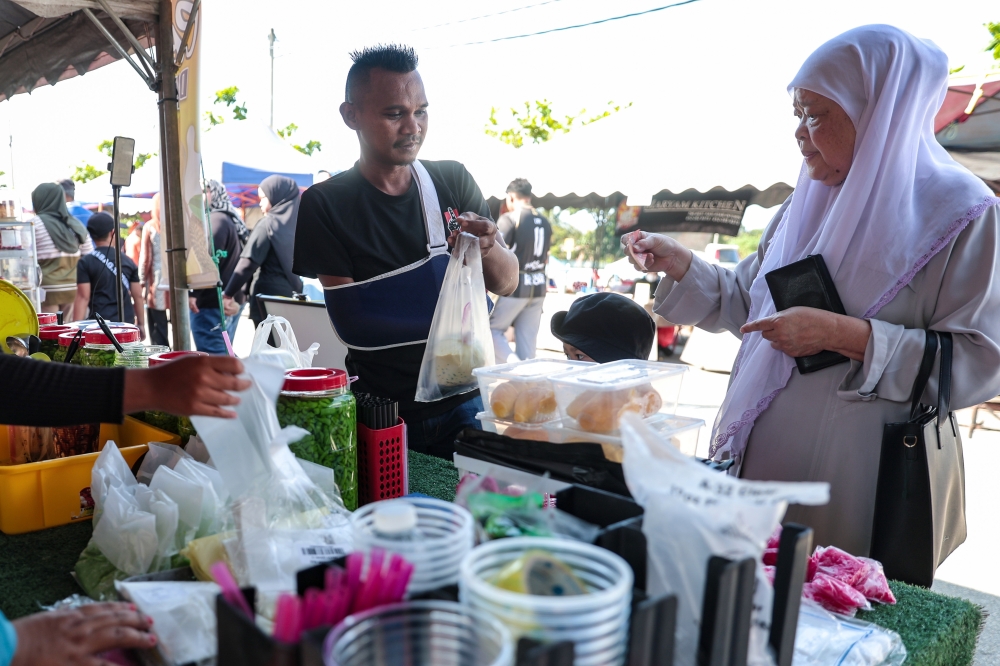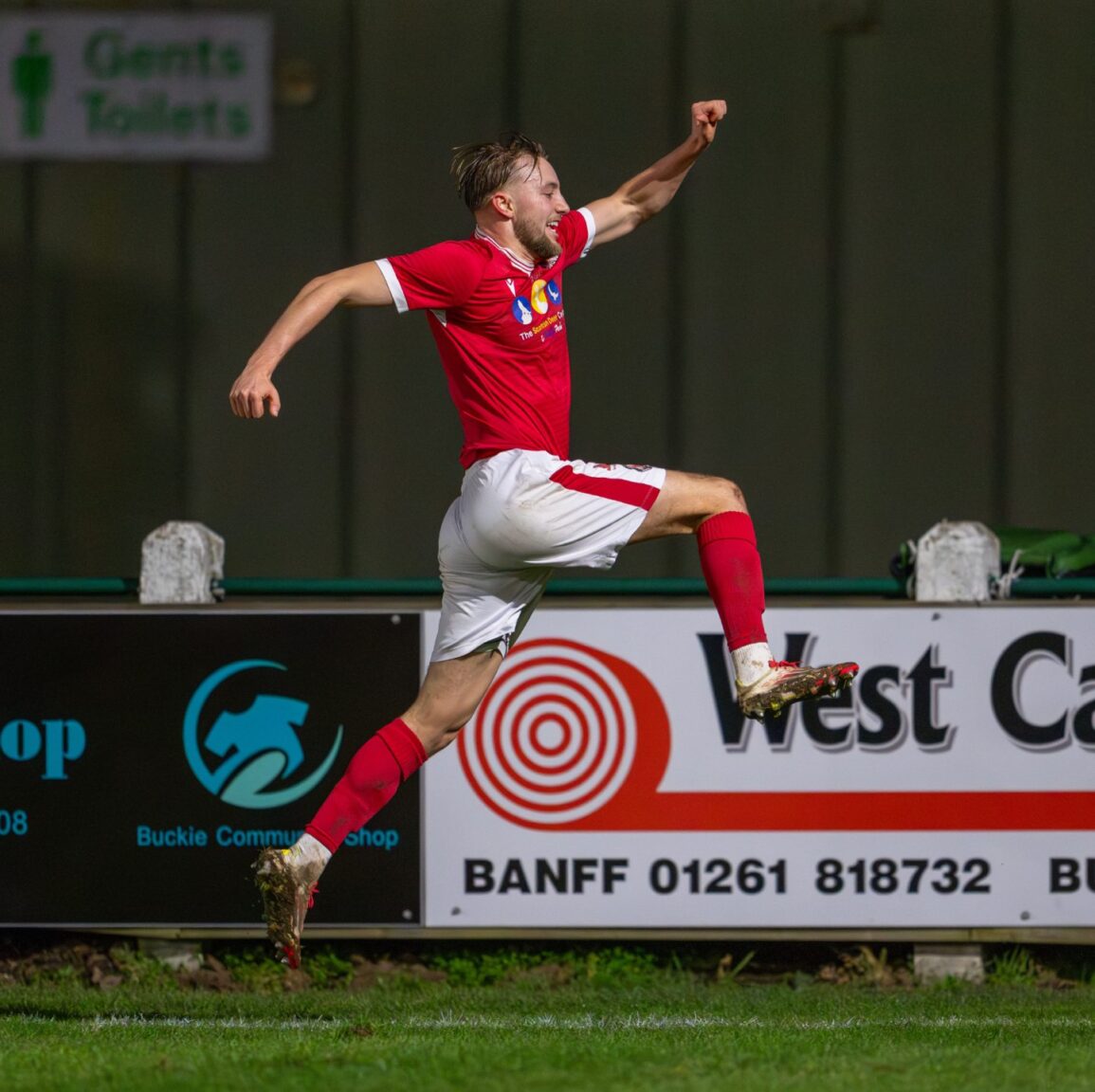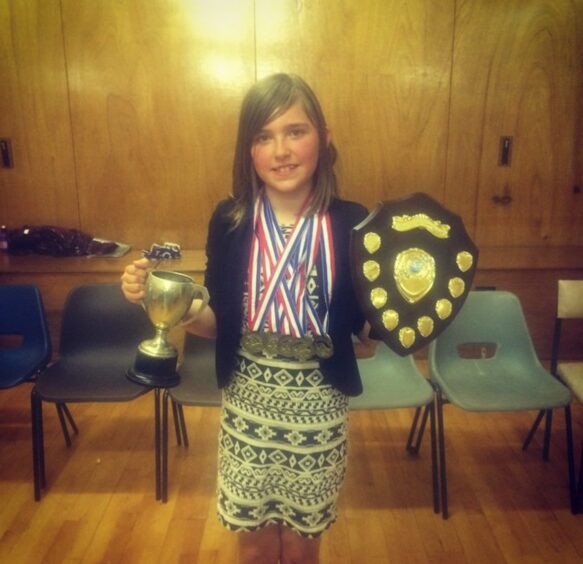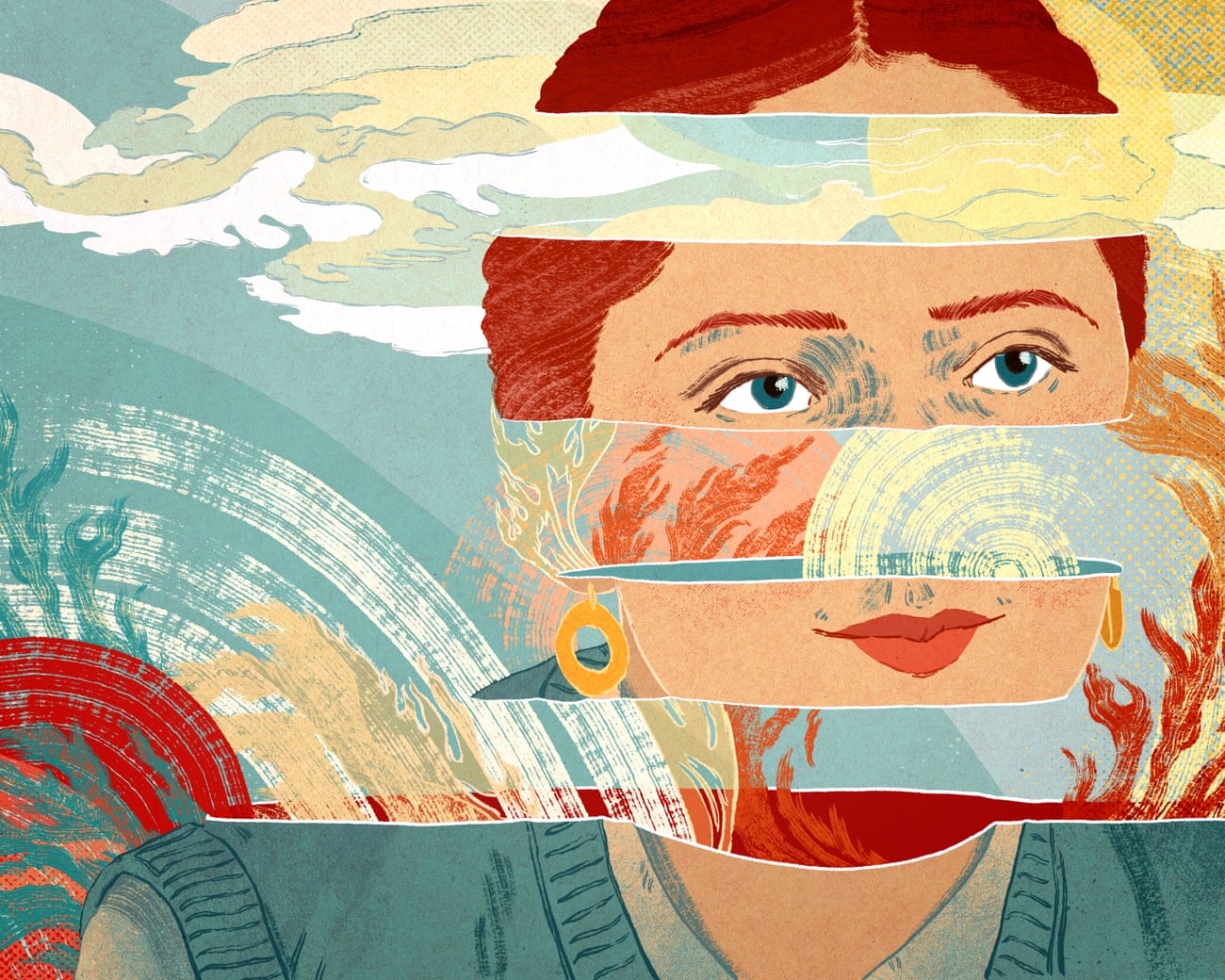Why her brain injury made Highland teen Morgan feel like an alien at school
Morgan Thain Miller was 10 when her brain swelled to life-threatening levels and left her unable to walk. But her struggles continued at high school.
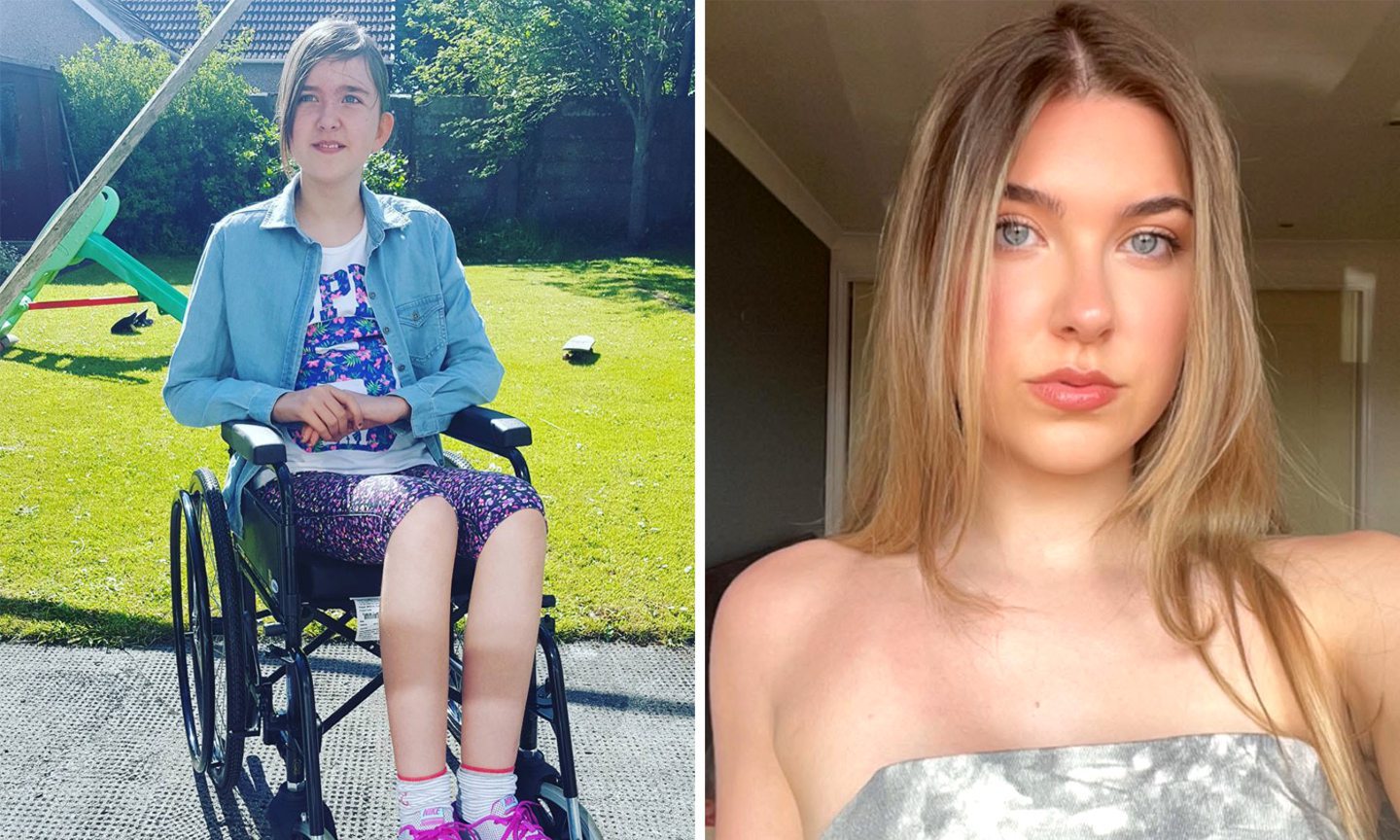
At the age of 10, Morgan Thain Miller’s brain swelled to such a size that doctors gave her a 20% chance of survival.
She defied the odds and lived — but the rare condition, called cerebellitis, initially left her unable to walk and, later, uncoordinated and clumsy.
The once-promising swimmer dodged P.E. She avoided group sports because when someone threw a ball to her it would bypass her hands and smack her in the face.
Worst of all, she couldn’t run.
“I would run, but then I would end up falling on my face,” she explains. “Every single day.”
Fast forward to today, and Morgan, now 20 and speaking excitedly down the phone from Ayrshire where she lives, has a pronouncement to make.
It’s been a decade since her diagnosis and a few years on from those humiliating moments in gym class and the playground.
But next month, she will take part in her first 10k.
“I never thought I’d be able to run,” she says. “But here I am, training for my first race.”
‘My brain had gotten extremely large’
As the name suggests, cerebellitis affects the cerebellum, the part of the brain that controls movement.
The inflammatory condition is extremely rare, but when it does appear it is usually in infants.
So for Morgan to contract cerebellitis aged 10 was completely unexpected.
In fact, the condition was so rare in someone her age that her neurologist had to consult with specialists in Dundee and abroad.
This contributed, she says, to a delay in diagnosis and the severity of the swelling.
“My brain had gotten extremely large,” she says. “They didn’t actually know what it had done, what damage it caused.”
Though Morgan says there’s much she can’t remember from this time, she clearly recalls feeling confused and frustrated as her life was derailed. It was May 2016 and she was just finishing Primary 6 when she first started to feel unwell.
Hit by an allergic reaction to medication, she was rushed to A&E in Inverness by her mum, Keri, and grandmother, Mardi.
She lost the ability to walk as her brain swelled and created havoc with the signals in her cerebellum.
Later, she had a toxic reaction to medication that caused hallucinations and her heart rate to spike to more than 200 beats per minute.
“I was kind of just like, why does it have to happen to me?” she says. “Everything in my life — my friends — I was doing very, very well. And then all of a sudden it just went down.”
Learning to walk, talk and eat again
With the cerebellitis finally diagnosed, Morgan was put on a course of steroids.
Over the next three weeks she had to learn how to walk, talk and feed herself again, with help from family and speech therapy and coordination exercises.
“Talking came back quicker than walking,” she says. “And I’m so grateful for that, because I love talking.”
The effort was overwhelming. Her confidence was shattered — and one of her deepest fears became a kind of waking nightmare.
“I was so scared that one day I wasn’t going to be able to talk. That I’d go to say something and nothing would come out.”
There were other fears, too.
When Morgan returned to school, her friends welcomed her back warmly. They had stayed in touch while she was in hospital, sending letters and photos from a local music festival.
Still, she dreaded being seen as different.
“[The doctors] said, ‘You can take your wheelchair to school — people are going to help you every day.’ And I said okay. But I tried my hardest not to use it.
“Even though it was really, really hard, mentally, I tried to be like everyone else and pretend I was okay.”
The outside looked fine but inside things were falling apart
By the time Morgan reached high school in Wick, the most obvious signs of her illness had faded. She was walking, talking and keeping up with her classmates — at least on the surface.
“I probably would’ve said I was totally fine,” she says. “But I really wasn’t.”
She spoke quickly, often stumbling over her words. And while most people assumed she had moved on, Morgan was quietly struggling with something she didn’t yet have the words for.
“I hadn’t processed the trauma that I’d been through. I didn’t want to believe it was real.”
According to brain injury charity Headway, about 80% of people who sustain a traumatic brain injury experience mental health issues, with depression and anxiety common long after physical recovery.
For Morgan, this emotional toll was beginning to show. She withdrew socially and avoided conversations.
“I felt like an alien,” she says. “Like I didn’t fit in with anyone.”
Then, when she was 15, it all came crashing down. She remembers being angry, sad and “all the emotions that you can think of”.
“I had a brain injury,” she continues. “I’d had a very low chance of survival. I was definitely not like everyone else.”
From private pain to public platform
She was diagnosed with depression and started counselling and medication. Crucially, she also began journaling, a small act that would soon become something much bigger.
“At first, it was just for me,” Morgan says. But the blog, called Makiablogs, launched in 2023 and quickly took off.
Covering everything from brain injury recovery to mindset, travel, and life as a young adult navigating trauma it caught the attention of people from all over the world.
Readers in Sweden, Australia and the US began contacting Morgan and telling her how her story had resonated with them.
“They told me my words were exactly what they needed. That I’d made them feel understood.”
Encouraged by a college lecturer who heard her deliver a speech about her brain injury, Morga contacted Headway, the UK-wide brain injury charity.
Until that point, Morgan hadn’t even known brain injury charities existed.
“I thought it was just mental health support. I didn’t realise there were people who understood exactly what I’d been through.”
Through Headway, she discovered events, services and a community of people who had faced similar battles.
“For the first time, I felt like I’d found my people.”
A decade later, life looks very different
Today, Morgan is the happiest she has ever been.
A City of Glasgow College HND law graduate, she works as a swimming teacher, gives speeches about her condition and loves puzzles and escape rooms that challenge her brain.
Her blog continues to reach new readers, and she’s more open than ever about what she’s been through.
And then there’s the race.
Next month, Morgan will stand on the start line of her first ever 10K — a moment nearly a decade in the making.
“It’s been about seven or eight years since I did any kind of competition,” she says. “This is a big moment.”
It’s the kind of milestone she once thought she’d never reach.
“I think 10-year-old me would be shocked,” she says, laughing.
“I have done my HND, I am walking almost everywhere every day and I am giving speeches — that is something that 10-year-old me would never, ever, ever think that I was able to do.
“And I am so proud that I get to do that.”
[Source: Press and Journal]










